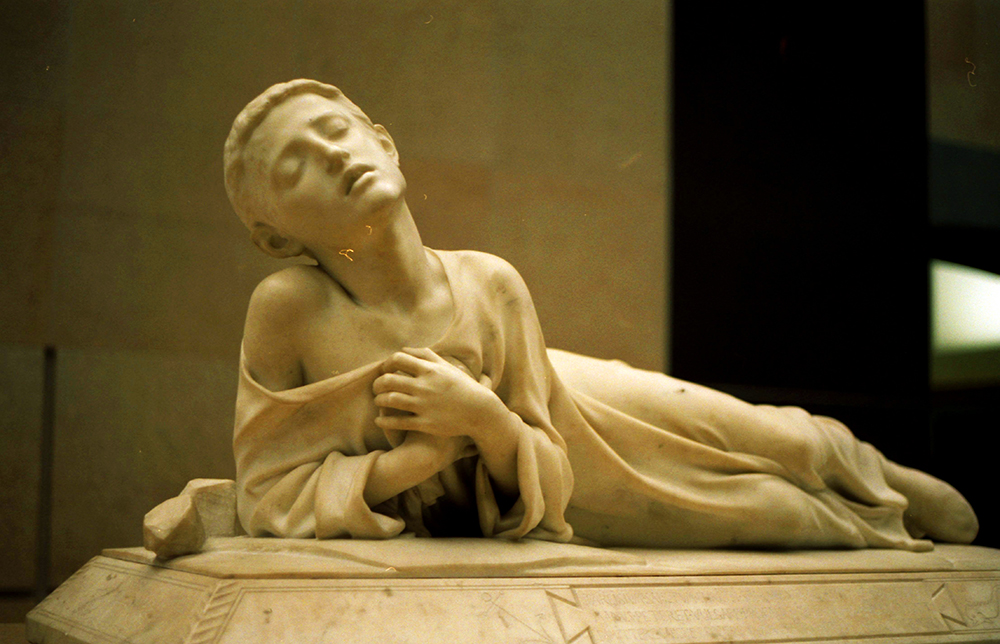The story of “Little Hugh of Lincoln” in Canterbury Tales was a very sad story but also touching. I teared up at the end of the story. This story was about a seven-years-old boy, a son of a widow. He lived in Jew area, but his mother taught him to be a faithful Christian. At young age, he loved Christ and Blessed Mother Mary. So, he learned from his fellow classmate on how to sing “O Alma Redemptoris”, a Latin hymn about Blessed Mother Mary. His devotion and sweet voice angered Satan, who then convinced the Jews into killing the boy. The Jews hired a murderer to kidnap the boy when he was going home from school. The murderer cut the boy’s throat. The boy’s widow mother searched for the boy when she didn’t see him return, but the Jews kept quiet on the boy’s whereabouts. When she found her son’s body on the next morning, he was dead, but he still sang “O Alma Redemptoris.” His sweet voice drew the Christians nearby, and they called the provost. The provost angered by this horror, and he punished all the Jews who involved with the scheme. The young boy’s body then carried to the church, where mass of funeral was conducted. The priest asked why the boy still singing after he dies. The boy told him that Christ allowed him to sing after his death to honor Christ’s beloved Mother, Mary. The Blessed Mother Mary also came to him before he died and console him in his fear, putting a grain on his tongue that allows him to sing until it was removed. The priest removed the grain, and the boy stopped singing. I was very touched by the boy’s love to Christ and Mother Mary, and I was sad by the Jews’ actions. I want to create a new ending, where the boy forgave the people who did harm to him. The provost followed the boy’s request and punished the people involved lightly. The boy’s forgiveness impacted all the Christians and the Jews. He taught them about love, peace, and forgiveness. Since then, the Christians and the Jews lived peacefully together.
 |
| Young Saint. Link |
Bibliography. Chaucer. Canterbury Tales. Link
No comments:
Post a Comment